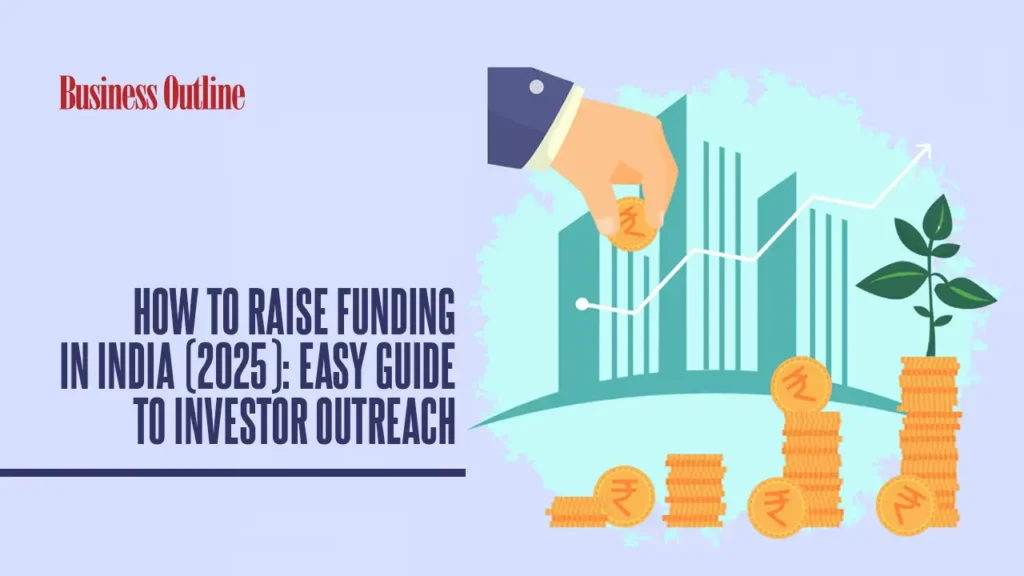Funding Made Simple: How Startups Can Raise Money in India (2025)
10 years ago, if you had to raise money, it meant asking from relatives, friends, visiting banks and trying to convince angel investors. These investors were difficult to find and reach out to. There were fewer formal programs. Getting investments was challenging and that meant, many potential ideas could never grow.
In 2025, getting funds has evolved. There are many ways to get money. There are government back up schemes, networks of investors are online, and the rise of venture capital funds have made it possible for the founders to concentrate on their ideas and not be bothered about capital. But now because it is easy to get money for your startup, it means there’s more competition. However, you can create an advantage over others if you know how to avail and approach the right investor for your business.
1. Where can your money for your idea come from?
Government Programs
Out of all the things that the Indian government is doing right, this one stands almost on the top. The government has made it easy to avail loans for start-ups. Additionally, it has done a brilliant job educating people about these schemes. Usually many government schemes are lost because the outreach program fails. Some key schemes the GOI have are:
- Startup India Seed Fund Scheme (SISFS) – This fund scheme gives up to Rs 20 lakh grant as grant and up to Rs 50 lakh as convertible debt for creating prototypes and test products at developmental stage.
- Fund of Funds for Startups (FFS) – In this scheme, the Government gives funds to large investment houses. These investment houses then invest in start-ups.
- Credit Guarantee Schemes – Usually, when you borrow money from banks, there is a mortgage that you have to keep. What if you don;t have a mortgage? Should your ideas die then? No! The government becomes your guarantee. The Government takes a guarantee for you up to Rs 20 crore. This way banks feel safer lending you the money.
- Startup India Scheme- This scheme promotes Women to step up into entrepreneurship. The Government gives loans to women entrepreneurs for starting a manufacturing, service or trading business. The loan amount is from Rs 10 lakh to 1 crore and can be repaid in 7 years. The condition to avail this loan is that women should have at least 51% of ownership and it should be the first time start-up.
Private Investors
These include:
- Angel investors – These are rich individuals who invest in startups.
- Venture capital (VC) funds – As seen in popular TV show Shark Tanks. These are firms that have huge amounts of money. They give loans in exchange of fixed ownership rights in the company.
- Family offices and corporate investors – Some large offices and corporate investors also invest in long term growth of businesses and companies.
- International investors – Investors across the globe also invest in growing businesses and potential start-ups.
2. Prepare Your Startup for Funding
Before you contact investors:
- You must get DPIIT recognition under Startup India. This is required for government funding.
- For training, mentoring and building a network join an incubator or accelerator like T-Hub, CIIE.CO, or IIM’s incubation programs.
- Have a very clear and detailed understanding of your data, sales, cost, customers and future plan.
3. Build Your Investor Outreach Plan
Step 1: Create a strong pitch deck – Step 2: Use official platforms like The Startup India Investor Connect tool. Step 3: Network actively – find where startup events are taking place, be in roadshows, and join meetups. Step 4: Find investors who have already invested in businesses like yours.
4. How to Approach Investors
- Shortlist of 10–20 investors
- Send a personal email
- Follow up politely
- Share any updates or progress you made.
- After Getting Interest
If an investor likes your idea:
- Negotiate terms – Understand how much ownership you are giving up and what you are getting in return.
- Plan for the future – Many investors prefer to invest in multiple rounds, so keep them updated on your growth.
Final Tips
It is your dedication and direction that ultimately proves how far you can take your business. Your planning, art of conversation, knowledge about plans and schemes, your network and your resilience are the key to your success.
Read more: Top Business Magazine


